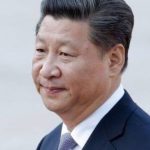- India on May 13th 2017, came out in open opposition against Beijing’s One Belt, One Road (OBOR) forum, reminding China that no country will accept a project that ignores its core concerns on sovereignty and territorial integrity.
- India has strong reservations over the China-Pakistan Economic Corridor, a flagship project of the connectivity initiative.
Read in Hindi:China’s road initiative is like a colonial enterprise: India
- India has escalated its opposition to OBOR, suggesting that the project is little more than a colonial enterprise, leaving debt and broken communities in its wake.
- “We are of the firm belief that connectivity initiatives must be based on universally recognised international norms, good governance, rule of law, openness, transparency and equality. Connectivity initiatives must follow principles of financial responsibility to avoid projects that would create unsustainable debt burden for communities; balanced ecological and environmental protection and preservation standards; transparent assessment of project costs; and skill and technology transfer to help long term running and maintenance of the assets created by local communities. Connectivity projects must be pursued in a manner that respects sovereignty and territorial integrity.”
- Structural misalignments of OBOR have been detailed by observers and scholars.
- Like Sri Lanka, where an unviable Hambantota port project has left Colombo reeling under an $8 billion debt, Pakistan may be headed in the same direction; Laos is trying to renegotiate a railway project, Myanmar has asked for its own renegotiation; a Belgrade-Budapest railway line to be built by China is under investigation by the EU.
- Chinese infrastructure projects in foreign countries are typically executed by state-owned enterprises, while financing programmes, which initially appear attractive, sour quickly.
- India’s statement comes as wake up call for Xi Jinping and his biggest foreign policy outreach, and puts paid to any prospect of bilateral ties improving during the rest of Modi’s tenure.
- Xi has given this summit top billing, projecting himself as the world’s latest globalisation guru at a time when the West appears to be in retreat.
- Pointing out that enhancing physical connectivity should bring greater economic benefits to all in an equitable and balanced manner, the MEA said, “We are working with many countries and international institutions in support of physical and digital connectivity in our own immediate and near neighbourhood.”
- Citing examples, the MEA spokeperson said that under the ‘Act East’ policy, India is pursuing the Trilateral Highway project; under the ‘Neighbourhood First’ policy, we are developing multimodal linkages with Myanmar and Bangladesh; under ‘Go West’ strategy, we are engaging with Iran on Chabahar Port and with others in Central Asia on International North South Transport Corridor.
- India’s connectivity programmes, he said, were more collaborative, more in tune with the needs and capabilities of the smaller partner.
- The Cabinet gave nod to India’s accession to UN-led TIR Convention in March, which will give traders access to “fast, easy, reliable and hassle free international system for movement of goods by road or multi- modal means across territories.” MEA stated this accession would happen soon. China signed on to TIR Convention in 2016.
Source: Times of India











